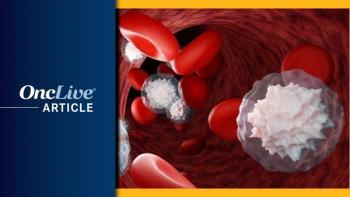
Dr. Cortes on the Results of Quizartinib in Relapsed/Refractory AML
Jorge E. Cortes, MD, professor and deputy chair, Department of Leukemia, The University of Texas MD Anderson Cancer Center, discusses the results of quizartinib in patients with relapsed/refractory acute myeloid leukemia.
Jorge E. Cortes, MD, professor and deputy chair, Department of Leukemia, The University of Texas MD Anderson Cancer Center, discusses the results of quizartinib in patients with relapsed/refractory acute myeloid leukemia (AML).
The phase III randomized controlled QUANTUM-R trial evaluated the safety and efficacy of the FLT3 inhibitor quizartinib in patients with relapsed/refractory FLT3-ITD—mutant AML. The first report from this trial was presented at the 2018 European Hematology Association Congress, showing that single-agent quizartinib significantly prolonged overall survival (OS). The median OS for patients treated with quizartinib was 27 weeks (95% CI, 23.1-31.3), and 20.4 weeks (95% CI, 17.3-23.7) for patients treated with salvage chemotherapy. Cortes says that the OS hazard ratio of quizartinib was relative to salvage chemotherapy at 0.76 (95% CI, 0.58-0.98; P = .0177).
Additionally, the percentage of patients that are alive at 1 year is 26% in the quizartinib arm, and 20% in the control arm of salvage chemotherapy. Cortes says that with a statistically significant median OS, this trial is very positive for patients with FLT3-ITD—mutant AML.



































